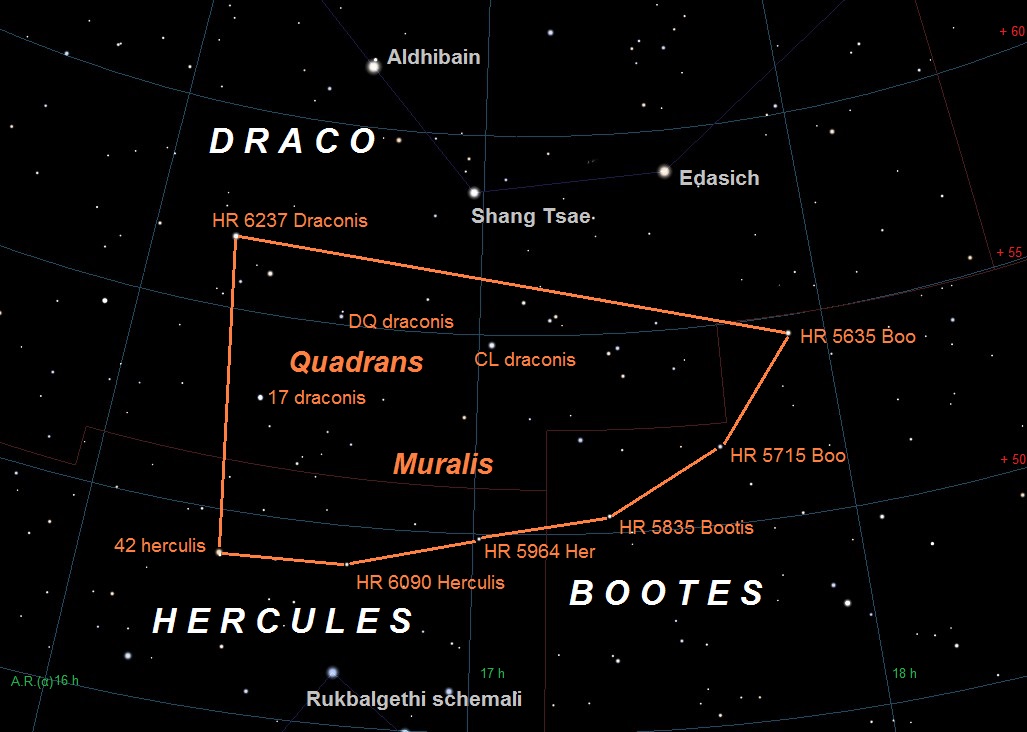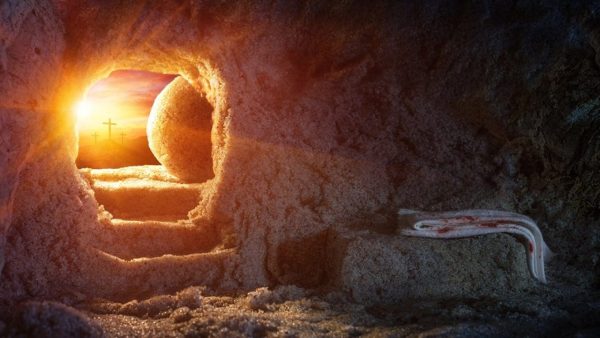
The new astronomical year begins, as every year, with a rain of “shooting” stars, the Quadrantids, which this year will peak in Greece and the rest of the northern hemisphere early on the night of Monday, January 3, at about 22:40 Greek time.
This year’s Quadrantids could prove to be even the best such phenomenon of the year, according to the Royal Astronomical Society, as conditions this year will be ideal for observation, as there will be a New Moon on January 2, so the night sky will be dark, while the next full moon – the first of 2022 – will occur on the night of Monday, January 17.
In fact, shortly after the climax of the Quadrantids, on the morning of Tuesday, January 4, at 08:52 Greek time, the Earth will be at its perihelium, ie at the closest point of its orbit from the Sun.
Up to 50 meteors per hour
Quadrantids are best visible at the northernmost latitudes, especially in a northeasterly direction in the sky. They peak at up to 50 meteors per hour, entering the Earth’s atmosphere at speeds of more than 40 kilometers per second, while up to 120 meteors have been reported in some years. It is a drizzle of shooting stars that is considered better than average, although it is less known than others such as Leonids, Orionids and Geminids, as its meteors are fainter, but often illuminate the sky with unusually giant “tails”.
How the Quadrantids got their name
This rain of “shooting stars” takes its name from a faint constellation (Quadrans Muralis or mural quadrant – was an old astronomical instrument before the invention of the telescope), which was discovered by the French astronomer Jerome Lalad in 1795, but no longer exists. In 1922, Quadrans Muralis was omitted when the International Astronomical Union (IAU) formalised its list of officially recognized constellations.
Today the source of the meteors seems to be the constellation of Bootes, in which the Quadrans Muralis was incorporated in 1922, when the International Astronomical Union identified the 88 constellations that exist today.
Astronomers are still unsure of the passing comet, which left behind a tail of dust and particles that turn into meteors each time the Earth crosses its orbit.
It is possible that it is the asteroid “2003 EH1” with a diameter of about two kilometers, which is the remnant of a former comet, C / 1490 Y1. The asteroid was officially discovered in 2003, but the mother comet was first observed by Chinese, Japanese and Korean astronomers as early as the 15th century. The first observations of the Quadrantids in Europe were made by the Brussels Observatory in 1825.
Latest News

New Exposé by Domumento Reveals Nefarious Triangular Link of ‘Black Money’ with New Democracy, Blue Skies, & Truth Team
The latest exposé by the Documentonews.gr news site lays bare what appears to be a surreptitious path of indirect financing of ND through the business sector—transactions that, as widely understood, rarely occur without expectations of reciprocal benefit

PM Meloni Meets Vice President Vance in Rome Signalling Optimism on Ukraine Talks
Meloni emphasized the strength and strategic value of the Italy-U.S. partnership.

Airbnb: Greece’s Short-Term Rentals Dip in March Amid Easter Shift
Data from analytics firm AirDNA shows that average occupancy for short-term rentals dropped to 45% in March, down from 49% the same month last year.

Easter Week in Greece: Holy Friday in Orthodoxy Today
At the Vespers service on Friday evening the image of Christ is removed from the Cross and wrapped in a white cloth

Meloni and Trump Meet in Washington, Vow to Strengthen Western Ties
“I am 100% sure there will be no problems reaching a deal on tariffs with the EU—none whatsoever,” Trump stressed.

ECB Cuts Interest Rates by 25 Basis Points in Expected Move
The ECB’s Governing Council opted to lower the deposit facility rate—the benchmark for signaling monetary policy direction—citing an updated assessment of inflation prospects, the dynamics of underlying inflation, and the strength of monetary policy transmission.

Current Account Deficit Fell by €573.2ml Feb. 2025: BoG
The improvement of Greece’s current account was mainly attributed to a more robust balance of goods and, to a lesser extent, an improved primary income account

Hellenic Food Authority Issues Food Safety Tips for Easter
Food safety tips on how to make sure your lamb has been properly inspected and your eggs stay fresh.

Greek Kiwifruit Exports Smash 200,000-Ton Mark, Setting New Record
According to data by the Association of Greek Fruit, Vegetable and Juice Exporters, Incofruit Hellas, between September 1, 2024, and April 17, 2025, kiwifruit exports increased by 14.2%.

Easter Tourism Boom: Greece Sees 18.3% Surge in Hotel Bookings
Among foreign markets, Israel has emerged as the biggest growth driver, with hotel bookings more than doubling—up 178.5% year-on-year.







![Πλημμύρες: Σημειώθηκαν σε επίπεδα ρεκόρ στην Ευρώπη το 2024 [γράφημα]](https://www.ot.gr/wp-content/uploads/2025/04/FLOOD_HUNGRY-90x90.jpg)





![Airbnb: Πτωτικά κινήθηκε η ζήτηση τον Μάρτιο – Τι δείχνουν τα στοιχεία [γράφημα]](https://www.ot.gr/wp-content/uploads/2024/07/airbnb-gba8e58468_1280-1-90x90.jpg)


























 Αριθμός Πιστοποίησης
Αριθμός Πιστοποίησης